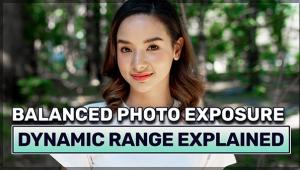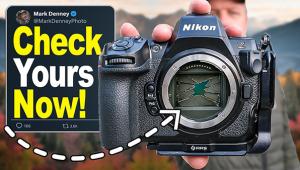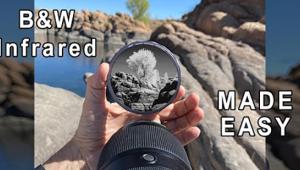Indy Ultra-Wide Zooms For Digital SLR Cameras; We Test The Sigma AF 10-20mm, Tamron SP AF11-18mm, And Tokina AF 12-24mm Page 2
 |
 |
 |
|
| Sigma AF 10-20mm f/4-5.6 EX DC HSM |
Tamron SP AF11-18mm f/4.5-5.6 Di II LD Aspherical (IF) |
Tokina AF 12-24mm f/4 AT-X PRO DX | |
| Build Quality | Middleweight; rugged metal barrel | Lightweight; solid construction with polycarbonate barrel | Bit heavy but feels most sturdy; metal and polycarbonate barrel, all-metal zoom unit |
| Light Falloff At | Minimal; none by f/5.6; no vignetting with standard polarizer | Minimal; none by f/8; no problem with polarizer | Minimal; none by f/5.6; no problem with polarizer |
| Barrel Distortion | Very well controlled; barely noticeable even at 10mm | Very well controlled; barely noticeable even at 11mm | Well controlled; noticeable only at 12-14mm |
| Autofocus | Very fast, nearly silent with HSM model; focus ring does not rotate | Moderately fast; a bit noisy; ring rotates | Fast; fairly quiet; ring does not rotate |
| Manual Focus | Well damped but could be smoother | Smooth and well damped | Perfect; reminiscent of a fine manual focus lens |
| Flare Control | Exceptional | Exceptional at most focal lengths; slight flare at 11-14mm in extreme sidelighting | Exceptional but slight contrast reducing flare at long focal lengths in extreme conditions |
| Chromatic Aberration | Minimal purple fringing around bright subject edges | Minimal, esp. at longer focal lengths | Minimal, esp. at longer focal lengths |
| Short Focal Length Performance | Excellent image quality from f/5.6-f/11; quite good at f/16 | Very high image quality at f/4.5-f/11; acceptable+ at f/16 |
Excellent image quality from f/4-f/11; slightly soft at f/16 |
| Longer Focal Length Performance | Very good+ at f/4.5-f/11 at 20mm; good at 15mm (slight edge softness); acceptable at f/16 | Very good at f/4.5-f/11, even at the edges; acceptable at f/16 | Excellent from f/4-f/11; quite good at f/16 |
| Conclusion | Superb performance esp. at short focal lengths | Fine performance | Pro-caliber performance, esp. at f/8, but some barrel distortion |
Tamron's SP AF11-18mm f/4.5-5.6 Di II LD Aspherical (IF)
The lightest of the three lenses tested, this one is nicely finished in satin
black, with a wide zoom and focus ring; both provide enough friction for convenient
operation. The internal barrel extends very slightly when zoomed to 18mm. The
focus ring does rotate during autofocus operation but the response is acceptably
fast for an ultra-wide lens and not particularly noisy. The barrel includes
an AF/MF switch, distance scales, and focal length markings at the 11, 13, 15,
and 18mm position.
When designing this zoom, the engineers specified two types of aspherical elements
to correct the angle of light plus other measures for even brightness across
the frame. The lens also benefits from a low dispersion plus a high index/high
dispersion element to minimize optical aberrations and to optimize color rendition
and resolution. The high-grade optical formula paid off, because this lens produces
images that can make very good to excellent 11x17" prints.
Outdoors on sunny days the corner-cut lens hood--plus the extensive multilayered
coating--prevented flare except in extremely bright sidelighting. Light
falloff at the edges of the frame was minor and disappeared by f/8. As with
the other zooms, my standard Hoya circular polarizer caused no darkening at
the corners but I removed it when necessary to minimize the risk of flare. My
best images--made at any focal length at f/4.5 to f/11--exhibit remarkable
contrast and clarity, plus moderately high sharpness and resolution of intricate
detail. This consistency indicates a particularly effective optical design.
 |
|
 |
|
 |
|
|
Slightly more expensive than the other two contenders, this Tamron ultra-wide zoom is still relatively affordable. At a mere 12.5 oz, it's particularly portable, great for travel photography or when hiking for long distances. It's also the only one of the models tested that's available for the Konica Minolta Maxxum digital SLRs. If you want the latest technology and appreciate the fine reputation of Tamron lenses, this zoom is worthy of your consideration.
Tokina's AF 12-24mm f/4 AT-X PRO DX
Larger than its two competitors because of the wider, constant maximum aperture
of f/4, the Tokina zoom feels exceptionally rugged and boasts superb zooming
and manual focus mechanisms. Due to internal zooming, the length of the satin
black barrel never changes. Focal lengths are marked at five increments and
distance scales are available under glass. Instead of an AF/MF switch, modes
are changed by shifting the focus ring slightly forward or backward. Tokina
calls that feature a One-Touch Focus Clutch Mechanism; it's quick and
easy to use.
The optical formula includes Super Low Dispersion glass plus two aspherical
elements. This combination paid off because chromatic aberration is barely visible
at 12mm and virtually invisible at 24mm. And the aspherical elements are certainly
effective at controlling distortion at most focal lengths while providing great
edge to edge sharpness and brightness at wide apertures. Light falloff is barely
noticeable and it's gone by f/5.6. Flare is also very well controlled
particularly in the 12-18mm range.
The Tokina 12-24mm zoom produced remarkably high sharpness and resolution at
every zoom setting--particularly at longer focal lengths--at all apertures
from f/4 to f/11. Consequently, I never hesitated to shoot at f/4 for fast shutter
speeds in low light. Performance at f/16 is not as stellar but still acceptable.
After selecting my technically best images, I was able to make absolutely superb
12x18" prints that look sharp and finely detailed even under close examination.
This zoom is competitively priced but it does not include the very shortest
focal lengths available with many others on the market. Still, it extends to
longer focal lengths than its competitors, so it's certainly versatile.
Finally, like many other Tokina lenses, this one is somewhat heavy by today's
standards. Frankly, I doubt that will concern serious photo enthusiasts who
appreciate great build quality as well as the potential for pro-caliber images.
Anyone who has not previously considered a Tokina lens should certainly check
out this fine ultra-wide zoom.
Final Assessment
Any digital SLR owner who is frustrated by the inability to make true ultra-wide
angle images with existing lenses would definitely appreciate one of these zooms.
Useful for dynamic wide angle perspectives with a powerful near/far relationship,
they're also optimized for use with a digital camera, an important factor
in lenses of this type. When compared to my older 20-40mm zoom (designed for
35mm systems), they produced images with noticeably less purple fringing around
subject edges,
more snappy contrast, and greater edge sharpness at wide apertures.
Manufacturers/Distributors
Sigma Corporation of America
15 Fleetwood Ct.
Ronkonkoma, NY 11779
(800) 896-6858
(631) 585-1144
www.sigma-photo.com
Tamron USA, Inc.
10 Austin Blvd.
Commack, NY 11725
(800) 827-8880
(631) 858-8400
www.tamron.com
THK Photo Products, Inc. (Tokina)
2360 Mira Mar Ave.
Long Beach, CA 90815
(800) 421-1141
(562) 494-9575
www.thkphoto.com
- Log in or register to post comments

































